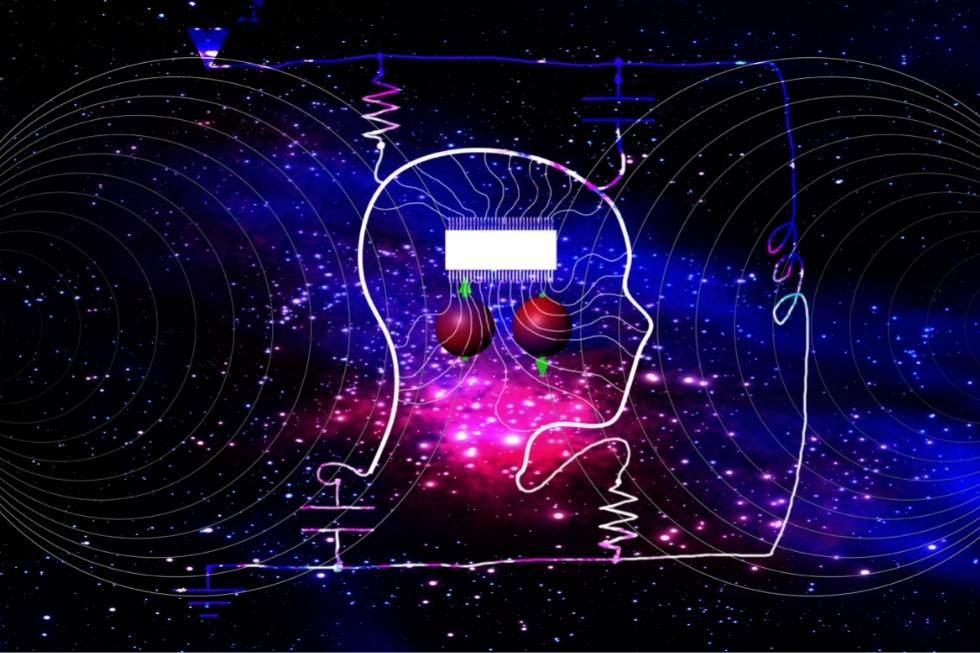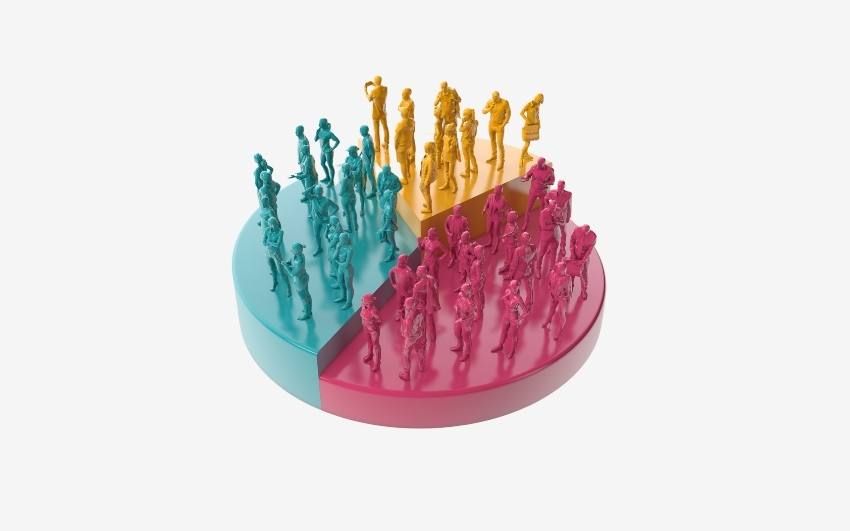On this page

Science of Law of Attraction: 21 Facts and Proof it Works
The science of Law of Attraction is defined as “the belief that positive ideas attract good life occurrences and negative thoughts attract bad life events. if you focus on a single wish and believe with all your might, it will be achieved,” according to the Urban Dictionary.
The Law of Attraction, according to popular wisdom, works like this: You visualize it, you get it. While there may be some truth to this, research shows that the science of Law of Attraction encompasses far more than what this description implies.
Many individuals believe the Law of Attraction is a pseudo-scientific theory despite lacking research on human capacities and skills such as intentional thinking, emotional intelligence, and visualization.
Visualization is used by Olympic competitors such as Michael Phelps, Allyson Felix, Ronaldinho, and Lindsey Vonn.
Since Soviet research in the 1970s began to back up the benefits of mental rehearsal, 70-90 % of Olympic athletes now use visualization tactics (also known as “imagery”) because it provides rapid results.
Today, academics from all over the world agree that good visualization techniques can help improve motor abilities, muscle strength, anxiety, self-confidence, and attentiveness.
It’s not for lack of effort or because you’re alone if you can’t manage to get what you want.
The following data, trends, and Law of attraction statistics can help you understand what it’s all about and how to use it to help you change your life.
Let’s get to the data and facts without further ado!
Introduction
The law of attraction is a metaphysical idea about how the universe works. According to this theory, people construct their life situations by thinking and feeling (Law of Attraction Statistics & Facts 2017).
The law of attraction is a New Age concept based on the idea that positive thinking can lead to life-changing events.
For decades, celebrities, businesses, and trainers have been fascinated by visualization and the Law of Attraction.
In this updated study, we identified the facts, figures, and action patterns that successful people use to use the Law of Attraction.
Key Law of Attraction Statistics & Facts

- The Law of Attraction is one of the most popular topics on the internet, with over 3.5 million searches per month.
- The Law of Attraction has been around for centuries, with some of its earliest proponents being Plato, Aristotle, and Socrates.
- The Law of Attraction is based on the belief that like attracts like, and that by focusing on positive thoughts and emotions, you can attract positive experiences and circumstances into your life.
- There is a lot of scientific evidence to support the Law of Attraction, including studies on brainwave entrainment, visualization, and affirmations.
- Even though everyone has failed to materialize what they desire at some point in their lives, the law of attraction movement is on the rise.
- Only 2% of people globally acknowledged the Law of Attraction in the 1990s. but that percentage has now increased to 73% of the world’s population.
- According to National Science Foundation research, approximately 25% of persons who apply the law of attraction approaches get results.
- The Secret was released in 2006. The book went on to become an international success, and its law of attraction theory fascinated readers worldwide.
- Over the previous few years, the global attraction industry has experienced 6-11 % annual growth rates.
- According to the International Digital Publishing Forum, the law of attraction book market is valued at $776 million.
- According to the US Department of Labor, around 16,000 life coaches are employed in the US today.
Law of attraction Usage Statistics

Law of attraction Usage Statistics
According to Law of Attraction statistics , at the least, 20% of all young people under 35 have heard of, read about, or seen something related to the concept of the law.
According to a Mintel poll, roughly 30 million Americans profess to apply ideas and tactics connected to the law of attraction.
- The fundamental law of attraction business was estimated at around $4.7 billion when the Secret book and film were released in 2006.
- The worldwide law of attraction sector was worth roughly $15 billion in 2008 when the market for The Secret book skyrocketed in popularity.
- According to a Gallup poll from 2009, 21% of American people spend at least one-hour practicing meditation or another form of mental calm, such as yoga or prayer.
- The quantity of worldwide web traffic directed to sites about the Law of Attraction has increased since 2009. The market for the book The Secret is still estimated to be worth roughly $60 million.
- According to Google statistics, searches for ‘law of attraction’ and ‘law of attraction tactics’ increased in 2013. when the law of attraction was popular in the United States.
Demographics:
- Organic food is purchased by 9.5 % of seniors in the 40-44 age group and 8.6 % of seniors in the 45-49 age group.
- Married users account for 62.7 % of males and 62.3 % of females.
- Manufacturing employs 26% of the population, while Assoc. Professional & Technicians have the greatest employment rate among those aged 18 and over in New York, at 17.9%.
The Law of Attraction is a $15 billion industry with over a billion people ready to learn the secrets to success in any form.
Only approximately 3% of the population, in my experience, is aware of and uses the law of attraction effectively. This elite group, which includes the world’s most powerful and accomplished people, makes up about 3% of humanity.
Around 40% of the public agrees with the concept. Yet, not all them put it into practice. Only around 40% agree with the underlying concept other than passively or actively through prayer.
Change can only be brought about by entire confidence. If you pray for something but don’t believe in what you’re asking for, it’s less likely to be effective.
The remaining 47% of the public appears skeptical about the concept.
I believe that the number of people who apply the theory will skyrocket in the future. Those who are prepared to experiment and put their theories into practice currently have a considerable advantage over the rest of society.
Scientific Proof That the Law of Attraction Works

Scientific Proof That the Law of Attraction Works
The science of Law of Attraction: Many scientists and psychologists have studied the topic law of attraction. While scientific research has demonstrated the effectiveness of optimistic thinking, some researchers have been unable to do so.
- In the past, there were no scientific studies that show that the law of attraction exists.
- In the past, there were no scientific evidence that the law of attraction exists.
Supportive evidence of the science of law of attraction now exist.
Positive thinking, gratitude journaling, and visualization techniques are proven to help in the manifestation process.
A lot of research has been done on the power of optimistic thinking. Positive thinking, it turns out, can have a big impact on your mental and physical health.
The concept of the law of attraction is based on quantum physics ideas that claim this “rule” includes a vibrational and energetic component.
According to science, medicine, and philosophy, certain frequencies can be used to prevent illness, while others can be used to drop it.
Dr. James Doty, a Stanford neurosurgeon, explains that specific actions like writing down goals, reading them aloud, and visualization can hardwire the brain, making goal achievement more likely.
“Everything in life is made out of vibrations.” — Einstein, Albert
Like attracts like
A spiritual wellness coach, Emma Halley, explains, “It’s the principle of ‘like attracts like.” “What we send out into the world returns to us because everything, including ideas and feelings, has a vibration.”
“By believing that we have already achieved [our objectives], we put forth a frequency and vibration that attracts the world to us.”
- In a 2005 study, people in excellent moods were more likely to be happy and successful.
- Russian research from the 1970s found that envisioning your goals increases your odds of achieving them.
- According to a global poll conducted in 2010, picturing your goals enhances the likelihood of becoming a reality.
- According to a new study involving researchers worldwide, using visualization techniques can increase motor abilities, muscular strength, anxiety, self-confidence, and concentration.
Despite the lack of scientific evidence, many people worldwide believe in and use the law of attraction in their daily lives.
The Science Behind The Law of Attraction
The science behind the Law of attraction is all about mental strength.
Many people assume that creating something out of nothing is a supernatural process, yet those who sell themselves as such neglect an important factor.
The impact of the legislation on our behavior is one of the most important repercussions. The majority of the differences between who you are and who you wish to be are determined by your habits and behaviors.
Every year, a new generation of millionaires emerges. Every day, we observe many people become wealthy in various ways. They’re all the same in terms of habits and acts. You, too, share this sentiment.
Your actions, behaviors, and habits have led to your current condition.
It would help if you changed your attitudes, routines, and actions to progress in life.
How habits affect your outcomes
- 90% of our behaviors, routines, and activities are influenced by our subconscious minds.
- According to Carryl Baldwin of George Mason University, who was part of the research, your subconscious mind handles most of the operation while driving. People’s minds frequently wander – “on average some 70% of the time.”
- Habits are developed via the unconscious repetition of equal acts, such as the clothes you wear, eat, or drive your car.
The qualities that will help you overcome low self-esteem, life issues, and self-destructive behavior patterns are the most important to master.
We make decisions far more often than we would want. We influence what we BELIEVE to be true about ourselves, and we can be correct regardless of what we think about ourselves.
How behavior patterns affect outcomes
We must first acknowledge that the negative self-image we have of ourselves is untrue. As a result, if we change our beliefs about who we are, we may begin to change our behaviors, and our lives will change.
- We notice things that we would have before disregarded. Things that we now believe to be irrelevant to us are ignored.
- We adopt the characteristics of others to achieve our goals, as long as we believe it is necessary or consistent with who we want to be.
- We’ll pretend till we make it. Until we meet our goal, we act as if we are the person we want to be.
- You’re in synchronicity when your brain and body are in sync, when your thoughts, actions, beliefs, and behaviors are all in sync.
- Because the dread of the unknown will no longer be a source of self-doubt. Also, reprogramming your subconscious mind with affirmations and visualization techniques can help you believe in yourself.
- If wealthy individual believes they do not deserve the money, they will take steps to lose it.
Consider the concept of self-image. When you put emotion behind it, you become even more of who you think of yourself.
Self-image
When you’re in sync, you’re in synchronicity; yet, the concept of self-image is linked to visualization, which is a key concept in The Law of Attraction.
- Without a vision, we would be lost in the dark, as Solomon puts it in Proverbs 29.
- The New York Daily News reports that 70% of lottery winners become bankrupt within seven years.
- According to a recent poll of NBA players who went on to earn million-dollar or more contracts. 95 % of them were still poor five years after retiring.
Law of Attraction Experiments

Law of Attraction Experiments
There are no real numbers to back up the law of attraction statistics because it is not a scientific premise, yet. But, anecdotal and empirical data suggest that the law of attraction works for a large percentage of students.
Many people believe in the law of attraction’s effectiveness, and many people have had success using the law of attraction to do desired results in their lives.
While it’s practically hard to say whether the law of attraction is effective for everyone, there’s enough data to suggest that it could be helpful for some people.
What is the success rate of the law of attraction?
If you look at the various law of attraction statistics and facts, you may see a variety of different responses.
- The success rate is under 0.1 %, according to prior research by LOA Expert John Assaraf of the movie The Secret.
- Because my %age was just 5%, I switched to neuroscience study, where I now help my students reorganize their brains to reach their goals faster. It is highly successful when the brain and body are on the same page, like LOA. When mind, belief, and behavior are all one.
- While there is no one-size-fits-all answer to this problem, National Science Foundation research found that around 25% of those who use the law of attraction tactics have some success.
- According to a recent poll in a Facebook group, 50% of respondents stated they had a 75% probability of success, 40% said they had a 100% chance of success. Also, 10% indicated they had a 25% chance of success.
According to Harvard Business research, setting goals and achieving achievement has some surprising findings.
- Only 23.9 % of people had formal, written goals (3,391,867 people).
- While 28% of college grads have a strategy in mind, they don’t have any documented goal in writing.
- 77% of those polled have written down their goals at least once.
Individuals who have a mental plan are ten times more likely than those who do not have any written goals. People who have written goals are three times more likely to achieve them than those who don’t.
Most people don’t get what they want in life because of a lack of clarity or a failure to decide or write down what they want.
Goal-setting is not everything.
Several factors determine whether someone will be successful with the law of attraction, including their attitude, readiness to act, and understanding and application of the tactics.
The Law of Attraction is often a lengthy process that requires time and patience.
How many students implement the ‘law’ correctly?
A large percentage of goal setting individuals say that the law of attraction doesn’t work for them.
When analyzed regarding traditional goal setting, only 3% of people have written goals according to Harvard Business School research.
When analyzed regarding law of attraction statistics, only 3% of people have written goals.
Perhaps it’s not a surprise that it does not work for them?
To make it successful, one must do the minimum criteria for goal setting in order for the law to work for you.
Ask the questions:
- Do they have their goals in writing on paper?
- What is their mindset? Do they really believe this will work?
- How well do they comprehend the skills of writing goals, visualization and a positive thinking?
- How well do they put the techniques into practice?
- How eager are they to achieve their goals? Burning desire?
- How long do they expect it will take to achieve their goal?
- Do they appear patient or desperate?
All of these matter in order for manifesting to work correctly.
Other Interesting Facts & Statistics

Other Interesting Facts & Statistics
- Plato, the ancient Greek philosopher, said in 391 BC, “Like tends to like.” As you may be aware, this is very similar to the cliché “like attracts like.”
- Napoleon Hill used the phrase “vibration” 37 times in his book “Think and Grow Rich.” This term was extracted from the book, along with 100 chapters on using frequency to manifest your desires.
Conclusion
The law of attraction is a powerful tool for manifesting your wishes and dreams. While the science of law of attraction of how it works is still up for debate, the law is undeniably real and capable of producing concrete outcomes.
If you haven’t used the law of attraction to change your life yet, now is the moment to do so.
FAQs
The Law of Attraction is a powerful tool for manifesting your desires and dreams.
But how does it function?
The following are some of the most asked questions about the science of the Law of Attraction. Statistics, facts, proof and scientific evidence exist that it works.
What is the Law of Attraction, and how does it work?
The Law of Attraction works on the notion of what attracts like. In other words, positive feelings and thoughts attract positive events, while negative feelings and thoughts attract negative experiences.
Focus on strengthening your ideas and emotions around those experiences if you want to attract more positive experiences into your life. Focus on thoughts and sensations of love, for example, if you wish to attract more love into your life.
Focus on ideas and sensations of plenty if you want to attract more of them. The more you concentrate on these positive emotions, the more likely they manifest in your life.
Is there any scientific evidence that the Law of Attraction is effective?
The belief in the science of Law of Attraction is that one’s thoughts attract happy or negative situations into one’s life. Proponents of the law claim that scientific proof backs it up, while critics argue there is no evidence to back up the allegations.
Some scientific evidence suggests that the Law of Attraction may function. Yet, the evidence is inconclusive.
People who visualize success are more likely to achieve their goals, according to a study released in 2008. However, the study did not expressly focus on the Law of Attraction.
In addition, a 2017 evaluation of scientific studies revealed that the assertions made by proponents of the Law of Attraction were unsupported by data.
Overall, scientific evidence for the Law of Attraction statistics is ambiguous, but some study suggests it may have some validity.
Is the Law of Attraction real?
The law of attraction scientific evidence exists. The fact of the matter is that people can choose to attract happy or terrible situations into their lives by focusing on positive or negative thoughts. This has been verified by laws of physics.
Several self-help books and movies have promoted the law of attraction concept, but it has also received a lot of criticism. Critics argue that the law of attraction is based on false assertions, citing that many people who believe in it do not see major improvements in their lives.
Supporters of the law of attraction claim that it is a powerful instrument for manifesting desired changes, citing many success stories of people who have used it to better their lives. Whether or not the law of attraction is true is ultimately a question of personal opinion.
Is it possible to materialize anything using the law of attraction?
The law of attraction is that people may attract happy or terrible situations into their lives by focusing on positive or negative thoughts. The law of attraction is popular in the New Age movement and is frequently addressed in self-help literature.
The law of attraction’s proponents argues that it is a powerful instrument for manifesting one’s desires. On the other hand, critics believe that the law of attraction is a pseudoscience with no scientific evidence to back up its claims.
They also claim that it can be used to rationalize selfish behavior and that it can lead to disappointment when people do not get what they desire. It’s still up for dispute whether the law of attraction works.
There is little doubt, but, that the power of positive thinking may assist people in achieving their objectives. Also, developing a more positive attitude toward life.
Statistics for this article were gathered from the following sources:
- Subconscious Mind Power Explained, Brian Tracy
- (Post & Wrisberg, 2012; Ungerleider & Golding, 1991).
- Motor Imagery: Lotze, M., & Halsband, U. (2006). Journal of Physiology-Paris, 99(4-6), 386-395, Science Direct
- Increase the Odds of Achieving Your Goals, Harvard Business Study
- Good Therapy
- Understanding the Distracted Brain, Cognitive Distraction Paper
- Highway Hypnosis, Research Gate
- Why You’re Pretty Much Unconscious All the Time, Time
- Sports Illustrated
- Mind-wandering is common during driving, Science Daily
- US National Library of Medicine/National Institute of Health
- Everything in life is Vibration, Scientific Community Brazil
- Wikipedia
- The Placebo Effect, and the Immune-Brain Connection, Knowing Neurons
- Subconscious Driving, Science Fictional
- Encyclopedia Visualization Sport
- Without Vision, the People Perish, Christianity.com
is manifestation scientifically proven
law of assumption scientific proof
limiting beliefs
positive emotion
positive mindset

Petri Maatta is a mindset coach and neuroscience-focused author with 15 years of experience in personal transformation and success psychology. After seven years of business failures, he discovered the power of manifestation through a Fortune 500 mentor. Now, he shares neuroscience-backed strategies through DreamMaker membership, helping others transform their businesses and lives on their own terms.
Read My Story here.
Share This Story, Choose Your Platform!
You want to manifest a new car, but you’re wondering: Does this really work? Here’s
Many smart individuals are often linked with having a high IQ. However, according to emotional
According to online dating statistics over 90% of people believe in love at first sight,




